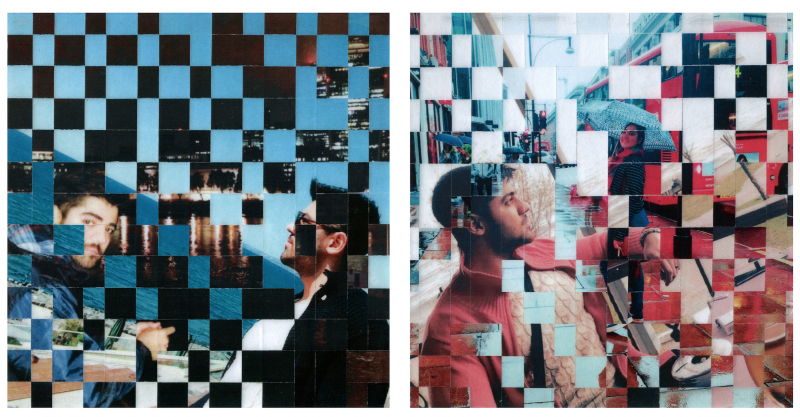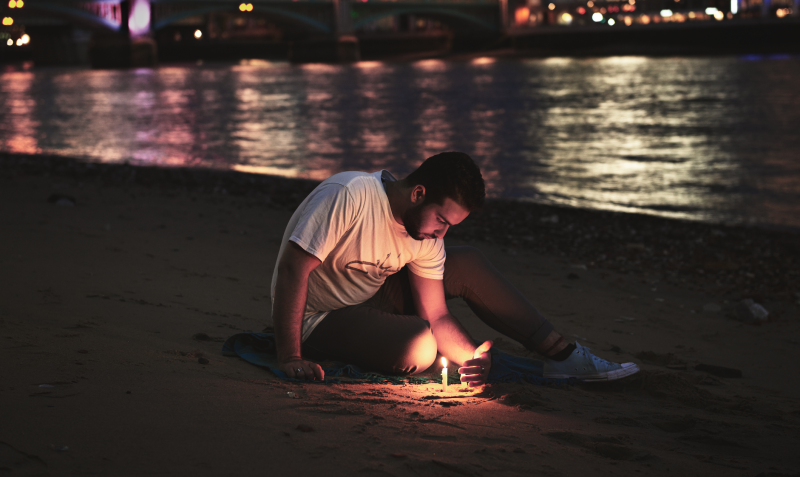BB Exhibit | The Power of Relationships – Words by Samira Shackle
We live in a political climate that is hostile to immigration across the board. In this context, complicated and messy human lives are all too often reduced to a series of crude categories: refugee, economic migrant, deserving, undeserving. These categories cannot hope to capture the complex set of circumstances that might lead to displacement, nor the struggles people face in putting down roots somewhere new. Reaching safety from war or a more personal persecution, and obtaining the legal status to remain in a new country might be the end of a physical journey, but it marks the beginning of a new quest: for language, employment, stability, friends, acceptance. These are all the things that make up a life.
In this exhibition, you will see the stories of people whose lives do not conform to a single stereotype. A Syrian family arriving in the UK on an official resettlement programme without speaking a word of English; a gay man from Egypt seeking personal freedom; a Yemeni human rights advocate displaced by war; a Kurdish political activist forced to flee from Turkey after being handed a jail sentence in childhood; a teenager from Eritrea making the wildly dangerous illegal overland journey to Britain. They are different ages, from different corners of the world, seeking refuge for a wildly varying host of reasons.
Relationships are a vital part of adjusting to a new place and finding your own place within it.”
But what their stories have in common is the deep, human desire for connection – and the loneliness that can be implicit in the refugee experience. Imagine leaving your home abruptly, and suddenly finding yourself in a disorienting new place where all the rules are different, where social norms are turned on their head, and where the support networks of friends and families that we all rely upon are thousands of miles away. Relationships are a vital part of adjusting to a new place and finding your own place within it.

That is why personal relationships are the focus of this exhibition. Sometimes, it’s a relative or a friend from home who has made the same perilous journey before you and can tell you where to look for help. Sometimes, it’s a work colleague who can offer professional guidance. Those colleagues might become friends, sharing meals and laughter, gossip and companionship. The stories you are about to read describe sometimes harrowing journeys and challenging circumstances, but they also show startling human resilience, and the hope and optimism that can flow from personal connections.

The people who have shared their stories for this exhibition represent the diversity of experience of refugees to Britain. Some faced lengthy delays in getting their asylum status, spending up to six or seven years as asylum seekers, banned from working and living a shadow life of near-destitution. Others were granted refugee status in a matter of weeks. At some stage, they have all worked with Breaking Barriers, a charity which helps refugees find meaningful work in line with their experience and qualifications. Breaking Barriers, which commissioned and curated this exhibition, helps with language skills, gaps on the CV, and other issues such as a lack of recognition for overseas qualifications and professional experience.
“The moment when we start taking responsibility for each other’s welfare can be a powerful turning point, and we should all take note.”
For many people, finding meaningful employment is vital to a sense of purpose and self-worth. But above and beyond their search for work, the people whose stories are told here are just that: people. They range in age from their early twenties to their late fifties, and are passionate about cooking, cycling, DJ-ing. Some have struggled with mental health problems, others with mastering English. Their stories dispel the myth that there is a single type of refugee, or a single type of person deserving of support. For many of them, the UK only started to feel like home when they formed a strong personal relationship with someone – be it a friend, colleague, or caseworker. The moment when we start taking responsibility for each other’s welfare can be a powerful turning point, and we should all take note.
Co-curated by Rebecca McClelland and Breaking Barriers, the exhibition includes photographs by 11 renowned photographers: Adam Broomberg and Oliver Chanarin; Nick Waplington; Caleb Femi; Campbell Addy; Diana Markosian; Jo Metson Scott; Léonie Hampton; Timur Celikdag; Leon Chew; and Samin Ahmadzadeh. Their portraits, which explore both documentary and fashion photography, reflect the refugees’ wildly diverging experiences in the UK. By challenging negative and pessimistic stereotypes often associated with the representation of refugees, these photographs offer an alternative way of thinking about each individual’s story. Continuing the theme of human connections, many of these photographers have themselves made a home in the UK, and they bring their own experiences to these creative and collaborative images.
